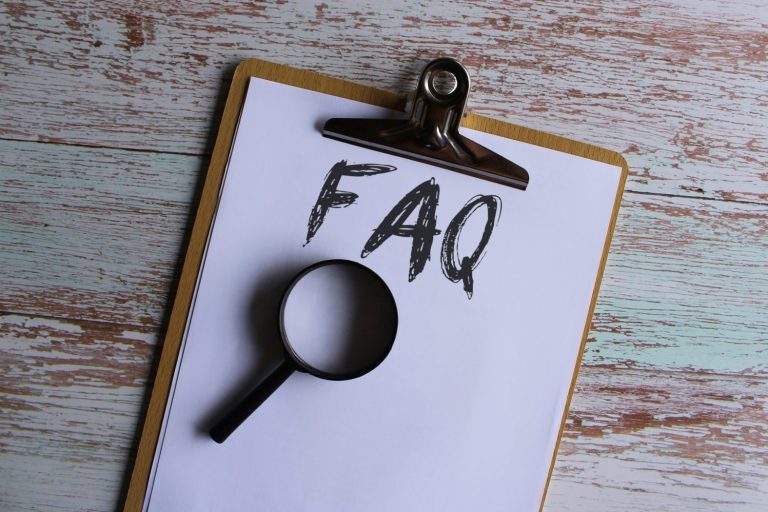Trying to wrap your head around JSON (JavaScript Object Notation) schema and the advantages of using this standard to validate JSON data?
Due to the substantial amount of complex technical jargon involved in data entry languages and projects, understanding JSON schema isn’t always straightforward – especially for less technical staff members.
Fortunately, the knowledgeable team at Aqueous Digital have assembled this clear and comprehensive guide to JSON schema.
Instead of feeling confused about this topic, we give you the confidence to generate JSON schema.
Regardless of whether you want to learn how to use a JSON schema validation or are eager to see a JSON schema example, carry on reading.
What are JSON documents?
JSON documents or files are a type of standard text-based format (based on the scripting language JavaScript) used to represent data. JSON allows for the interchanging of data using attribute-value (also referred to as name-value or key-value) pairs and arrays.
Initially, JSON was used as a notation (a system of characters, symbols, or graphics) for the world wide web, but it can now be used in many other contexts including the temporary storage of user-generated data as well as the translation of information for the benefit of computer systems or software.
The data in JSON files is stored as human-readable code making this information easy to understand for both machines and humans. You can identify JSON data from several key features alongside the data being presented in attribute-value pairs.
This includes the data being separated by commas, round brackets holding objects, and the square brackets holding arrays.
What are JSON files used for?
Used by thousands of websites, JSON files are typically used by web developers to send data from a server to a webpage, supporting the creation of interactive websites.
What is required for JSON?
While many different data management methods exist, JSON data management is regarded as one of the more straightforward options. It includes many different data types stored in key-value pairs.
JSON strings
A string value is a sequence of characters which can include numbers, symbols, and spaces. These values are always included in quotes, e.g.
{
“name”:”Aqueous Digital”
}
JSON numbers
The number values in JSON data are set out in JavaScript’s double-precision floating-point format. As a result, these values can be both integers and numbers with a decimal point value (floating-point numbers) as well as negative numbers, e.g
{
“age”:12
}
JSON objects
Object values are assigned to a value in a pair and are used for returning enumerable property values of a simple array. This information is then contained in curly brackets, e.g.
{
“company”:{“name”:”Aqueous Digital”, “age”:12, “town”:”Runcorn”}
}
JSON arrays
In contrast to objects, an array in JSON is contained by square brackets, instead of round brackets. It includes zero, one, or more ordered elements, each one separated by a comma, e.g.
{
“companies”:[“Aqueous Digital”, 12, “Google”]”
}
JSON booleans
A boolean value can only be one of two special values – true or false. They are not surrounded by quotes and are used to provide data regarding authentication, sales, and permissions, e.g.
{
“Sale”:true
}
JSON null
Objects that have no value are null. It indicates that a key hasn’t been assigned a value, but it also highlights the lack of value, e.g.
{
“phone number”:null”
}
What is JSON Schema?
Now you have a basic understanding of how JSON data is formatted, let’s explore JSON schema in more detail. Put simply, JSON schema is a proposed IETF (Internet Engineering Task Force) standard implemented to help format JSON data for a particular application.
This standard helps to structure the data and ensure that the collected data is both consistent and valid.
What are JSON schemas used for?
Errors in your data and data corruption can be incredibly damaging when it comes to both humans and machines understanding this information. Fortunately, JSON schema can help to eliminate these issues and allows you to validate the dataset encoded in JSON.
As well as JSON validation, this schema can also be used for JSON data documentation, hyperlink navigation, and interaction control purposes. JSON schema is vital for data organisation purposes as it dictates which fields are expected and how these values should be represented.
What is required in JSON Schema?
Unsure which keywords and properties should be included in a JSON schema? Below, we explain some of the primary JSON schema keywords and properties that are implemented to help humans, computer systems, and software to make sense of JSON datasets.
$schema
Confirms that the schema abides by a particular language links and valid schemas written for this language, such as the draft v4 specification.
$id
Defines the base URI (Uniform Resource Identifier) that other URI references in the schema are resolved against.
Title
Provides information surrounding the intent of the schema.
Description
Simply provides a description of the schema.
Type
Explains the type of schema data.
Properties
Defines the different keys and their value types in a JSON file.
Minimum
Provides information regarding the minimum acceptable value for a numeric datatype.
Items
Identifies the number of items that can be included in an array.
MinItems
Defines the minimum number of items that should appear in an array.
UniqueItems
Identifies whether every item in the array is unique relative to one another.
Required
Identifies which keys are mandatory.
What format is JSON Schema written in?
JSON schema itself is also written in JSON. This declarative language is a type of programming language where the program specifies the desired goal instead of describing its control flow by explicitly listing commands.
Understanding JSON schema: JSON schema example
Struggling to understand JSON schema and the way it works? To help you make sense of JSON schemas and how they can be manually generated to format datasets, we explain the below JSON schema example.
Example one
{
“company”: “Aqueous Digital”,
“age”: 12,
“town”: “Runcorn, Chesire, England”
}
Example two
{
“first_name”: “Aqueous”,
“last_name”: “Digital”,
“age”: “12”,
“address”: {
“street_address”: “Oak House Sutton Quays Business Park”,
“town”: “Runcorn”,
“county”: “Cheshire”,
“country”: “England”
}
}
These two examples of JSON datasets include the same information, but are structured in different ways. If you were to use the below section of JSON schema example to validate these datasets, you can see that only the second example would be properly structured as set out by the JSON schema.
{
“type”: “object”,
“properties”: {
“first_name”: { “type”: “string” },
“last_name”: { “type”: “string” },
“age”: { “type”: “number” },
“address”: {
“type”: “object”,
“properties”: {
“street_address”: { “type”: “string” },
“town”: { “type”: “string” },
“county”: { “type”: “string” },
“country”: { “type” : “string” }
}
}
}
How to create schema for JSON
Creating a schema for JSON can be as simple as using an online schema generator, such as the JSON Schema Tool. These tools are ideal for understanding straightforward JSON files, but they can also be modified to suit the bespoke requirements of your specific data management project.
However, you can also generate JSON schema yourself manually by following a few steps. Once you’ve familiarised yourself with the core JSON schema keywords explained above (such as $schema, $id, Title, Description, and Type), you can start to create the base of the JSON schema for the file.
Alongside these keywords, JSON schema may also contain additional components called properties. These properties might include ID, Name, or Price (depending on your data management requirements), and for each property, the Type can be used to define them. For example, ID and Name would be defined as “string” and Price would be defined as “number”.
Ultimately, the way in which you should create the JSON schema heavily depends on the type of information contained in the JSON file as well as how you want the data from the document to be structured.
If you require more expert and tailored guidance regarding the generation of JSON schema from an experienced web developer, please don’t hesitate to contact our helpful team. We can work with you to help you effectively structure, manage, store, and utilise a wide range of datasets from your website.
What are the advantages of JSON Schema?
There are many benefits to using JSON schema including the fact that this standard is essential to validating the quality and consistency of submitted data. With JSON schema, you can ensure that your collected data is suitably structured for your database and application.
Furthermore, thanks to the fact that JSON schema is written in JSON, this information can be easily read by almost every programming language. It can also be easily read, written, and understood by humans due to the clear descriptions and used for automated testing,
JSON schema also has the added advantage of supporting both complex and nested data, allowing you to specify which properties, types, and constraints you want your data to include and abide by.
How do you validate data using JSON Schema?
Once you have generated the appropriate JSON schema for the file, you can use it to validate the datasets. If you’re searching for a relatively quick and easy way to validate JSON schema, then we recommend using an online tool like JSON Schema Validator.
While many other online tools exist to help you validate JSON data, this JSON Schema Validator tool is both free and easy to use, helping you to spot a wide range of data errors and ensuring the data complies with the relevant schema.
Contact Aqueous Digital
A powerful tool for web developers, we understand how JSON schema can make a real difference to your database and application.
If you’d like to learn more about the advantages and reasons for using JSON schema, please don’t hesitate to contact the experienced team of SEO specialists and web developers here at Aqueous Digital.
Our award-winning digital marketing agency team has years of experience providing clients from all kinds of industries with crucial guidance. Specialising in paid and organic SEO services, reputation management for high-net-worth individuals, and expert content strategies, we can carry out a wide range of technical website support services.
No matter whether you’re trying to build brand awareness, increase your revenue, or educate your audience, rest assured we can help you to achieve your business goals.
For a free website health check and a no-obligation consultation, please feel free to reach out to our team today! To speak directly with one of our team members, simply give us a call on 0800 285 1424.
You can also get in touch by emailing your enquiry to hello@aqueous-digital.co.uk or filling in our convenient online contact form. We look forward to hearing more about your digital marketing requirements!






